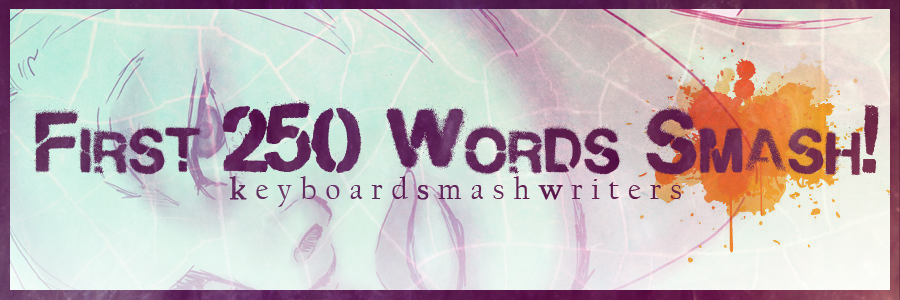Horrible Editor: Victoria
Working Title: Sightseeker
There was a dead man behind the funeral director. Jackson knew it was crazy; to claim a dead man was behind anything but a coffin didn't even make sense. But, as much as he tried to reason, the more he found there was no other explanation.
He barely breathed, the dead man, something that could explain the pasty blue tinge under his skin. His hands should have been pink, but were blue, just like his face above a line of red that circled his neck like a noose. He barely moved too—inhumanly so.
Jackson couldn't help but to think hawk or, worse, vulture as dead loomed over living. Boy, did that spirit loom.
“Miss Walsh, if you need time to decide on a coffin, we most certainly can hold this portion off a bit,” the director said.
Maybe fat blocked feeling. The director seemed coiled in his fatness; rolls on rolls of fat bubbled over his collar, manifesting a chinless neck that could fold into three sections. Mighty rude, but who was Jackson to know how sensing the dead worked?
But if fat controlled astral detection, then that meant his aunt should have been screaming by now. Granted, she was close, but the reason was for what she knew, not for what she saw.
“Thank you kindly for the concern,” she said. Her voice cracked. “But we can’t keep holding off on things. The funeral will never get done.”
Strong Points—
So between your older version and this one, this is much, much better. I’m pleased with the improvement you made, and this is a whole different story to me now! Your opening line is still a great hook, and from there it only gets better.
The description of the ghost is still wonderful, very haunting, especially when compared to a vulture that looms behind the director. You’ve painted a particularly vivid image of this thing and it is far from being human like it used to be. This thing gives me the creeps in the best possible way.
Jackson also has a particularly interesting voice, and he lightens the situation up with his internal commentary. His vision of the obese funeral director certainly spells him out as a bit of a douche, but almost an endearing one. His character is apparent right from the get go. ‘Mighty rude’ actually got a lol out of me.
Some Tips—
You have a few parts in here where you can eliminate mentioning Jackson. When you have sentences that say things such as ‘Jackson couldn’t help but to think’ or ‘Jackson knew’. Since this is, for all that we know, from Jackson’s POV, we already know it’s Jackson who is experiencing these thoughts and sights. When you eliminate that, you put us one step closer to the action and the sensation instead of removing us from it.
Also, there are some adjectives that you don’t need in here. They only bog down your narrative. Things like ‘He barely moved’. This is unnecessary and clunky, and it doesn’t paint as vivid of a picture as you could with other, more definite words.
Really, you’ve improved so much that you took all of the advice I never got to give you. Everything I would have wrote for your first submission was eliminated with this one, so go you! My last bit of advice is yours to take or leave, as it’s up to you and Jackson, but I find he is very calm for someone seeing a ghost. Perhaps he’s seen more ghosts that we have yet to hear of, maybe he’s had other experiences that have conditioned him. I don’t know. But he is looking at a ghost and almost joking about it, which isn’t quite normal.
Would I keep reading?
My answer to the first one was yes, but this is a much more enthusiastic YES! I love your character, and I love how you’ve described the ghost. I very much look forward to more, and I thank you so much for resubmitting this newest version!
